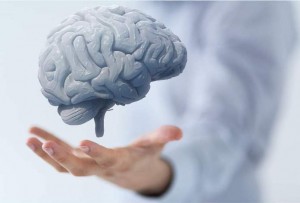What is Neuroplasticity and How Does it Affect Addiction and Recovery?
If you or a loved one are going through the struggles of addiction, you may be wondering how the healing capabilities of the brain can affect your addiction and recovery. In recovery, everyone would like for the addict to return to their former self, without the damage from the substance abuse. However, is that a possibility?
What is Plasticity?
According to NIH, biological plasticity is the ability for an organism to change in response to the environment’s changes. Applying this to human bodies, it is known that dead skin cells will slough off, and that your intestines, liver, and other internal organs will also regenerate cells.
Within the brain, however, there is not this constant renewal of nerve cells, which is why patients with brain injuries or strokes usually don’t return to their previous state of mind.
This observation has led many to believe that the brain and nervous system do not have plasticity, as they cannot regain lost functions and change with the environment.
What is Neuroplasticity Then?

With the right treatment, a person’s neuroplasticity enables them to recover from addiction.
If it was concluded that the nervous system lacks plasticity, then what could the term neuroplasticity mean? After this belief remained for many years, experiments with rats began to take place to show that the brain actually can regain certain functions with the correct training, such as physical therapy or cognitive therapy.
According to NCBI, this opens the doors for multiple ways in which neuroplasticity can be used in healing and recovery. Stroke patients, traumatic brain injury survivors, and individuals with neuropsychiatric disorders can all benefit from neuroplasticity.
How Does Neuorplasticity Affect Addiction?
According to NCBI, addiction targets an individual’s neuroplasticity, reshaping their brain’s functions so that they develop that drive to use the substance. Certain drugs will trigger the brain’s reward system, activating the chemical dopamine within the body.
With frequent exposure to large amounts of dopamine, the individual will begin to experience cravings, the strength of which is directly related to the amount of dopamine released by their reward system. This retraining of the brain also applies to non-drug addictions, as behavioral addictions such as gambling or shopping can also activate the brain’s reward system.
If you or a loved one find that this has become an issue for you, just call 888-646-0865 (Who Answers?) to learn about treatments.
What Does This Mean for Recovery?
If neuroplasticity plays such a large role in how an individual becomes an addict, then does it also play a role in reversing the position? The discovery that neuroplasticity was the culprit behind addiction motivated a change among treatment options, as medical professionals realized that the issue went far beyond what a simple detox could fix.
In order to reverse the addiction, one must retrain the brain through cognitive and behavioral therapies, all shaped according to the addict’s personal case. This can be a long and difficult process, but the good news is that it is possible with the right approach and effort.
Neuroplasticity allows the brain to be moved towards an addiction, but this plasticity can also be a benefit in helping an individual retrain their minds apart from the addiction.
If you think that recovery is the next step for you, just call 888-646-0865 (Who Answers?) to speak with a caring specialist who can answer all of your questions and concerns.





